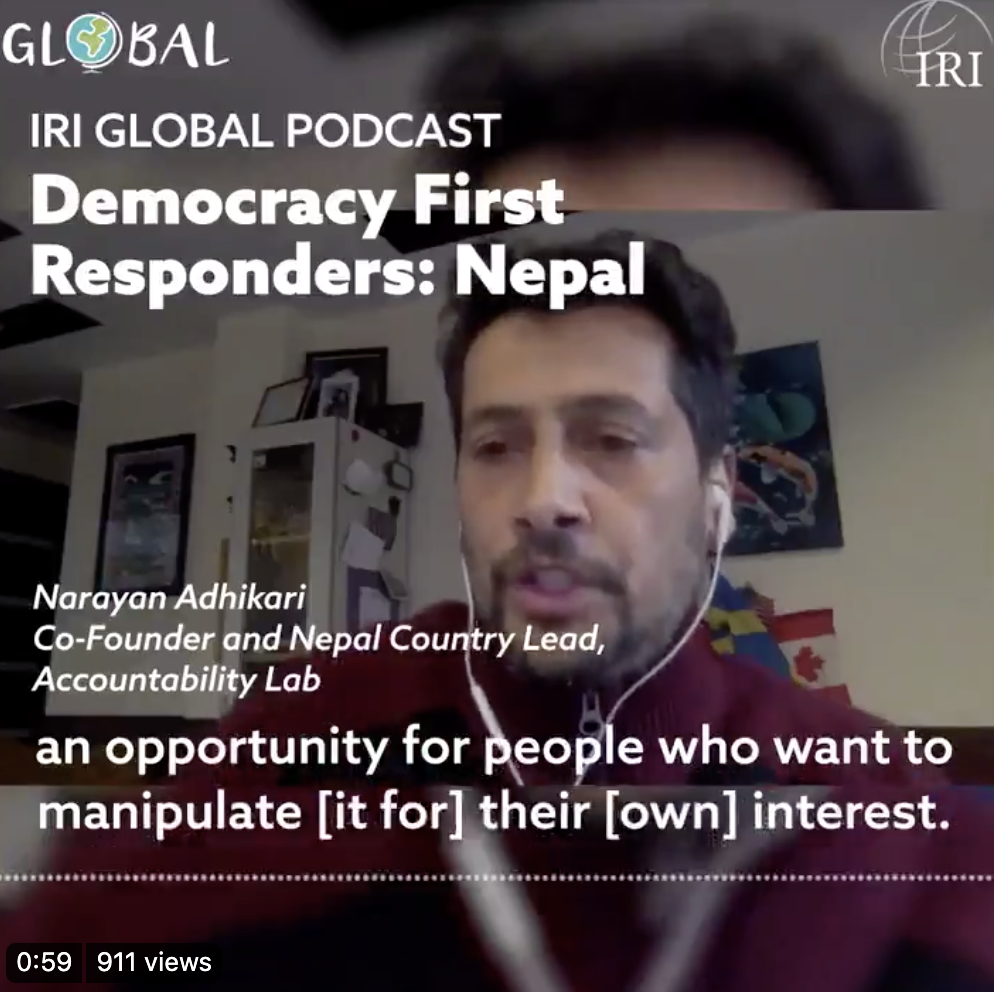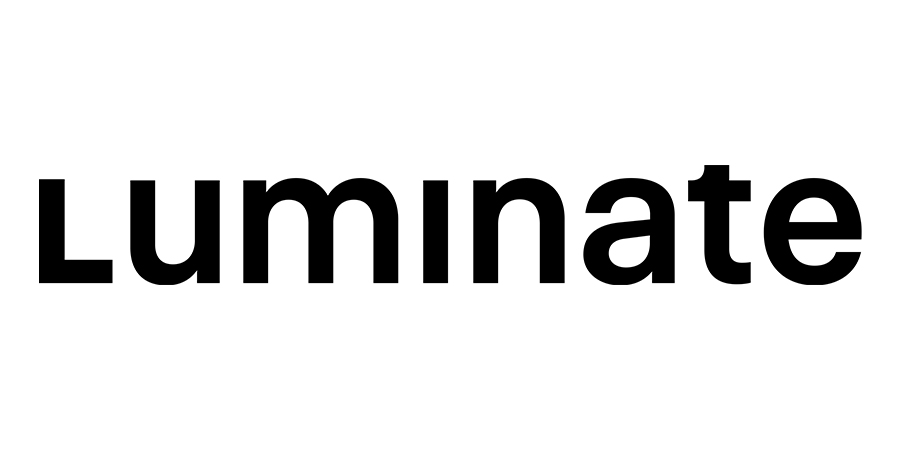
Democracy First Responders
Written by: The International Republican Institute
Democracy First Responders: Nepal, Narayan Adhikari
COVID-19 threatens not only lives and livelihoods, but also governments and democratic institutions. The International Republican Institute (IRI) is profiling our partners and other leaders who have been the “first responders” in our global fight to protect and strengthen democracy. In this new series, #DemocracyFirstResponders, we spoke with an anti-corruption activist in Nepal, a journalist in Zimbabwe, a former government official in Georgia and others to discuss their efforts to prevent democratic backsliding in the time of COVID-19.
For the second episode of this series, our host Samuel Johannes spoke with Narayan Adhikari, Nepal’s Director of the Accountability Lab, an organization committed to countering disinformation, keeping citizens informed and providing governments with the information needed to make better decisions in the time of COVID-19.
Samuel: So, Narayan, for members of our audience who are not aware of the situation in Nepal, could you just start off giving a broad overview of what the impact of coronavirus has been like for the average Nepalese citizen? What has the government response been like in Kathmandu and throughout the country?
Narayan: Thank you. I think this is a very bad situation, I would say. The whole country is locked down since [the] last two weeks. Though Nepal is a small country, however, the impact seems big. You may be hearing a sound from there, like the policeman [coming] in a van, informing [citizens] of how to take [precautions] [with] the virus and etc. So, the whole country is locked down. There’s a shortage of supplies, there’s a fear of being infected and there’s a lack of the appropriate information that people need. So, everything’s shut down, the schools shut down, the businesses shut down, the movement obviously shut down. The life is very, very quiet though. We don’t have [many] cases. Until now, it’s only nine confirmed positive cases, and one of the reasons is because we don’t have enough testing kits. So overall, the life is really, really in a pandemic situation.
Samuel: Is there a sense of like a lack of confidence in the healthcare infrastructure in Nepal?
Narayan: Absolutely. Our healthcare infrastructure has been very, very poor. [The] public health system in Nepal is not really well-managed, well-established. Though we have hospitals in every district, and the different parts of the country’s public health system is in a wide network, [the facilities] and the quality of the services is really, really low, with [a] lack of [infrastructure], [equipment] and [healthcare workers]. So as a result, the people are very, very afraid of … and even people just having flus and seasonal flus are afraid of going to [the] hospital. Many hospitals in different parts of the country, including the private hospitals, are refusing [to take people] with the fear of [corona], as these hospital[s] lack proper protective gear [for] the health workers and different frontline staff.
We don’t really have enough ventilators. We don’t really have enough ICU [intensive care unit] beds and so many other things that [are] needed, we don’t really have. So, I would say we have zero infrastructure investment [in] COVID. However, [the] government recently established several quarantine facilities in different parts of the countries where people coming from other countries, especially from India and [the] Gulf and Malaysia, [people] coming [from] there are putting [themselves] into quarantine and isolation.
Samuel: What are some of the other steps that the government has taken thus far in response to the outbreaks?
Narayan: I think for the government, for now, the priority is to [promote] the social distancing, the physical distancing. As a result, this lockdown has been very, very effective. However, only in the urban cities. Still in the rural areas, people seem to [be] moving from here and there, and people are still working on farms and so forth. [The other] response from the government side is to really make sure that there’s enough testing, labs are set up and there’s enough PPE [personal protective equipment] and other protective gear available for the healthcare workers. And also the [other] response [is to provide] supplies to the poor and wage workers who otherwise would not make their livelihoods. And at the same time, the government is also trying to work with companies and the [Nepalese] army to procure, buy stuff from other countries, mainly from China.
Samuel: Has there been much outreach to India as well, or is it primarily just China?
Narayan: Primarily from China because India has already said that they are not exporting any health-related supplies. So, the only option is China.
Note: Prior to our interview with Narayan, the Indian government had announced a ban on the export of certain medical equipment. However, since our interview, the Indian and Nepalese governments jointly announced efforts to cooperate on medical supplies related to COVID-19.
Samuel: So, sort of pivoting a little bit. Situations like coronavirus, although it is a bit of a novel situation, can become a catalyst for social conflicts. It’s ripe for misinformation. It’s ripe for sort of these deeply entrenched power dynamics to come to the head and be a point of friction again. How are you seeing these sort of things play out in Nepal now? And how are you looking to combat?
Narayan: I think this is a very, very important question and often when there is a situation like this, even right after the earthquake we had, we had issues [with] how people cope [with] each other and how one society [perceives] other societies. As there is a shortage of basic supplies, there’s a lack of mobility and if [the] government is not [more] efficient in supporting people when they are in need … And also a lot of people, they’re stranded in the borders between India and Nepal. So they want to come [to] Nepal in this difficult period of time. However, [the] government has completely locked the borders, and they are not allowing [people] to come in. And on one hand, they are saying we want to come to Nepal, and we will be happy to be in the quarantine, but on the other hand, [the] government is saying that, “No, you cannot come in.”
Read the rest on Democracy Speaks.





